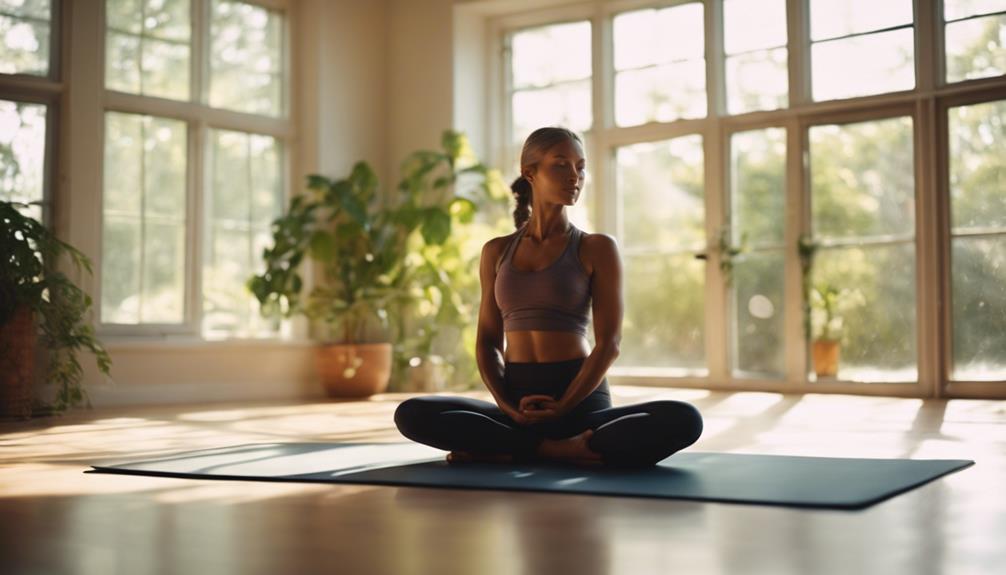“`
What’s Hatha Yoga? A Comprehensive Guide to the Ancient Practice
Understanding the Basics of Hatha Yoga
Hatha Yoga, a term derived from the Sanskrit words “ha” (sun) and “tha” (moon), refers to a set of physical exercises and postures designed to promote physical and mental well-being. It serves as the foundation for many modern yoga styles, focusing on balancing the body and mind. The practice emphasizes the alignment of physical postures (asanas), breath control (pranayama), and meditation, making it a holistic approach to wellness. This blog post will delve deeper into the essence of Hatha Yoga, exploring its origins, benefits, and practical tips for beginners.
History and Origins of Hatha Yoga
Hatha Yoga has its roots in ancient India, dating back to around the 15th century. It was initially developed as a means to prepare the body for meditation, allowing practitioners to sit for extended periods without discomfort. The Hatha Yoga Pradipika, a fundamental text written by Swatmarama, outlines various postures, breathing techniques, and ethical guidelines crucial to the practice. Over the centuries, Hatha Yoga has evolved, influencing various contemporary yoga styles while maintaining its core principles of balance and harmony.
The Physical Benefits of Hatha Yoga
One of the most appealing aspects of Hatha Yoga is its numerous physical benefits. Regular practice can enhance flexibility, strength, and posture. The asanas engage various muscle groups, promoting overall fitness and toning the body. Additionally, Hatha Yoga can alleviate tension and stress, improve circulation, and foster better coordination and balance. For individuals who may be new to exercise or have physical limitations, Hatha Yoga provides a gentle yet effective way to cultivate a healthier body.
Mental and Emotional Advantages of Hatha Yoga
Beyond the physical benefits, Hatha Yoga significantly impacts mental and emotional health. The mindful nature of Hatha Yoga encourages practitioners to focus on their breath and present moment, promoting mindfulness and reducing stress. Regular practice can help alleviate symptoms of anxiety and depression, fostering a sense of calm and emotional stability. The meditative aspects of Hatha Yoga also enhance concentration and self-awareness, allowing individuals to connect with their inner selves and cultivate a positive mindset.
Hatha Yoga vs. Other Yoga Practices
While Hatha Yoga serves as the foundation for many yoga styles, it is essential to understand how it differs from other practices. For instance, Vinyasa Yoga emphasizes flow and movement, linking breath with dynamic sequences, while Ashtanga Yoga follows a fixed sequence of postures performed at a faster pace. Hatha Yoga, on the other hand, is generally slower and focuses on holding poses for longer durations, making it accessible for all levels, especially beginners. Understanding these differences can help individuals choose the right style that aligns with their goals and preferences.
Getting Started with Hatha Yoga: Tips for Beginners
If you’re interested in exploring Hatha Yoga, starting your journey is simple. Begin by finding a local class or an online resource that offers beginner-friendly sessions. Invest in a good quality yoga mat and comfortable clothing to enhance your practice. As a beginner, it’s crucial to listen to your body and not push yourself too hard. Focus on mastering foundational poses and gradually building your strength and flexibility. Additionally, consider incorporating breathing exercises into your routine, as they are integral to the Hatha Yoga experience.
Incorporating Hatha Yoga into Your Daily Routine
Incorporating Hatha Yoga into your daily routine can be a transformative experience. Start by dedicating a specific time each day for your practice, even if it’s just 15-30 minutes. Create a serene environment free from distractions, using calming music or candles to enhance your experience. Mix various asanas and pranayama exercises to keep your practice engaging. You can also use guided videos or apps to help you stay on track. By making Hatha Yoga a regular part of your life, you can reap the long-term benefits of this holistic practice.
The Future of Hatha Yoga: Trends and Innovations
As the world continues to embrace wellness trends, Hatha Yoga remains relevant and dynamic. New innovations, such as online classes and virtual yoga retreats, have made Hatha Yoga more accessible than ever. Additionally, the integration of technology, such as wearable devices that track your practice, can enhance your experience by providing feedback and motivation. As more individuals recognize the importance of mental and physical health, the demand for Hatha Yoga is likely to grow, ensuring its place in the wellness landscape for years to come.
Conclusion: Embrace the Journey of Hatha Yoga
In conclusion, Hatha Yoga is a profound practice that offers a myriad of benefits for both the body and mind. Whether you’re seeking improved flexibility, stress relief, or a deeper connection to yourself, Hatha Yoga can guide you on your journey. By understanding its origins, benefits, and practical applications, you can make informed choices that align with your wellness goals. Embrace Hatha Yoga as a path to balance, harmony, and overall well-being, and discover how this ancient practice can enrich your life.
“`
This blog post is structured with SEO best practices in mind, focusing on the keyword “Hatha Yoga” while providing comprehensive information across multiple relevant aspects of the topic. Each paragraph is appropriately titled with H2 headings to enhance readability and search engine optimization.What To Wear To Heated YogaWhat To Wear Aerial YogaWhat Is Mysore Yoga
